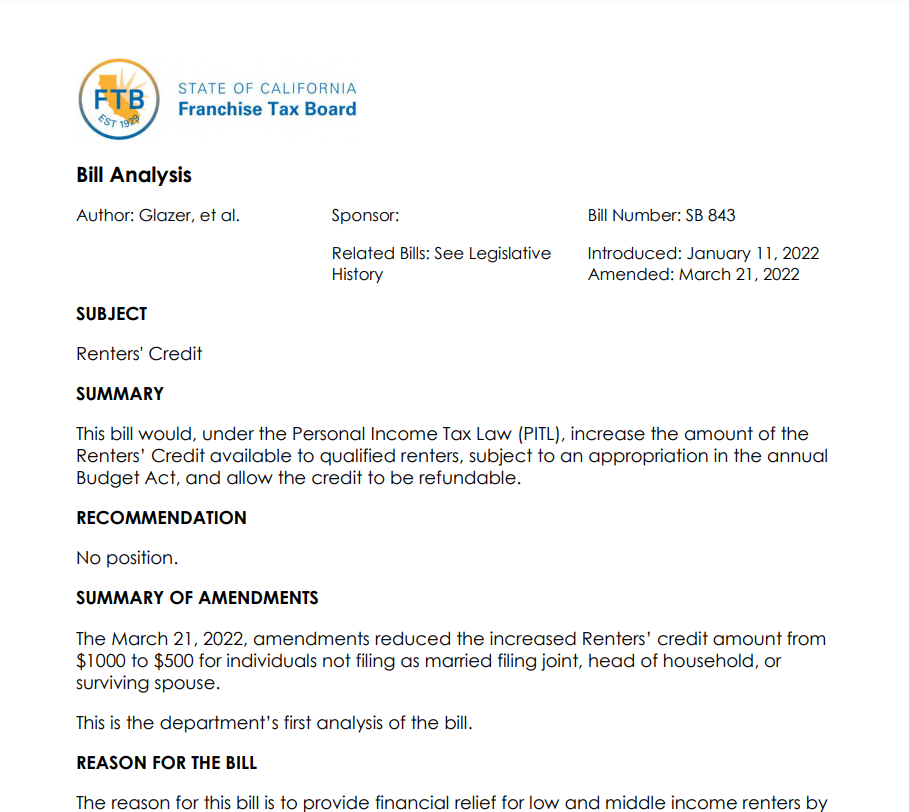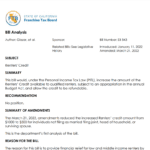California Renters Rebate 2025 – The California Renters Rebate is available to those who rent an apartment, home, or condo in California. This program is intended to enable you to decrease the quantity of your monthly mortgage cost. There are around 2.4 million people who can get the rebate. It is not free, though, so it’s critical to understand the requirements and what to anticipate from your application.
based on inflation; increased
The new California renters rebate 2025 is the greatest thing since sliced bread for helping your budget recover from inflation.And how does it operate? The best thing is that it is based on numbers, not on some preconceived concept of how to best raise the value of your rental property. It is also intended to pay for an update if one becomes required.
For instance, the fact that the cost-of-living rise for 2025 is the greatest one in more than ten years is not a coincidence. The Inflation Reduction Act, a comprehensive policy that is expected to lower yearly energy bills by up to $1,146, is to thank for that.
It’s also noteworthy to note that Californians will receive a $9.5 billion tax refund as part of the budget. This also provides a one-time emergency reaction and tax relief to combat inflation. Last but not least, the state has set aside $37.2 billion in budgetary reserves, added $1.3 billion for one-time projects, and added $1.95 billion for new funding for emergency housing assistance in an action to seize full benefit of the tax-friendly climate in the “golden state.”
Nonrefundable
You can get a nonrefundable tax credit that could help you pay your bills if you rent in California. However, it has been years since the credit was updated for inflation. Now, a proposed law would alter that.
If the proposed legislation is approved, 2.4 million Californians may see an increase in their next tax refunds. It also enjoys broad backing from both parties. It has the support of 42 parliamentarians in total, some of whom are Republicans.
You must be a resident of the state, submit a federal income tax return, and have paid your rent for the entire year in order to be eligible. A nonrefundable credit of $60 is available to single taxpayers, $120 to married couples filing jointly, and $90 to all other taxpayers.
The biggest tax credit you may now receive for paying your rent is a nonrefundable one. However, a recent Senate plan would provide up to $500 for individuals and $1,000 for couples.
available to around 2.4 million individuals
California is now crafting a new measure that might give rental assistance to 2.4 million more citizens in addition to the state’s other initiatives to aid renters. For individuals and couples, the plan would enhance the existing renter credit by $500 and $1,000, respectively. The bill has the support of about 40 lawmakers, including Republican leaders.
The California Legislature has worked to develop a number of initiatives to help low-income individuals in response to a housing shortage. The California Renters Tax Credit is one such program that gives low-income renters a break on their income tax obligations. While not refundable, this can help lower the amount owed by taxpayers. It is a sensible approach that gives families in California a much-needed vacation. Many low-income individuals, however, owe no taxes.
The population of the state has largely remained steady in recent years, while rent prices have risen. The Public Institute of California reports that in March, the median house price in San Francisco was $1.5 million. An extra $500 may make a significant impact for low-income households.
Causes of refusal
Tenant activists filed a lawsuit in the summer of 2025 against the California Department of Housing and Community Development (HCD) for rejecting their requests for housing assistance. The agency was allegedly rejecting a sizable number of candidates without following the correct procedures, according to the lawsuit. The judge decided in favor of the tenant advocacy groups on July 7 and instructed the housing administration to cease rejecting rental assistance without a good cause.
The case, which was filed in June 2025, said that HCD had been refusing help to applicants who were ineligible for the program, such as those who are evicted from a unit because they are homeless, and questioned the state’s violation of fair housing rules. It also raised concerns about the state’s lack of due process and demanded immediate policy changes to guarantee a fair application procedure for the program.
More than 45,000 renters are currently awaiting the assessment of their petitions. HCD updated its denial data as of July 13 to include dates for appeals and denial notices. However, the state hasn’t really explained why the program is turning down so many applicants for financing.
Download California Renters Rebate 2025

